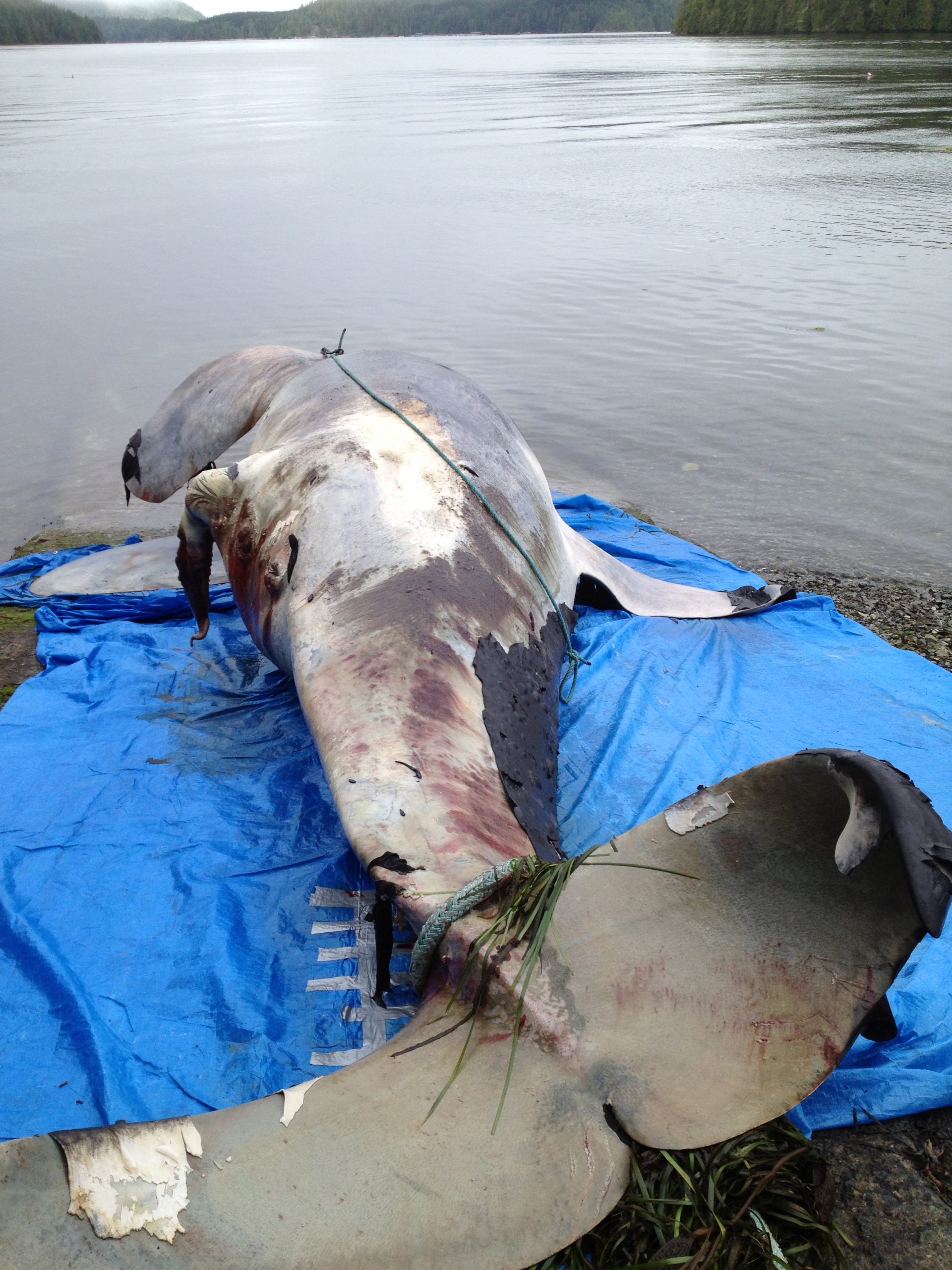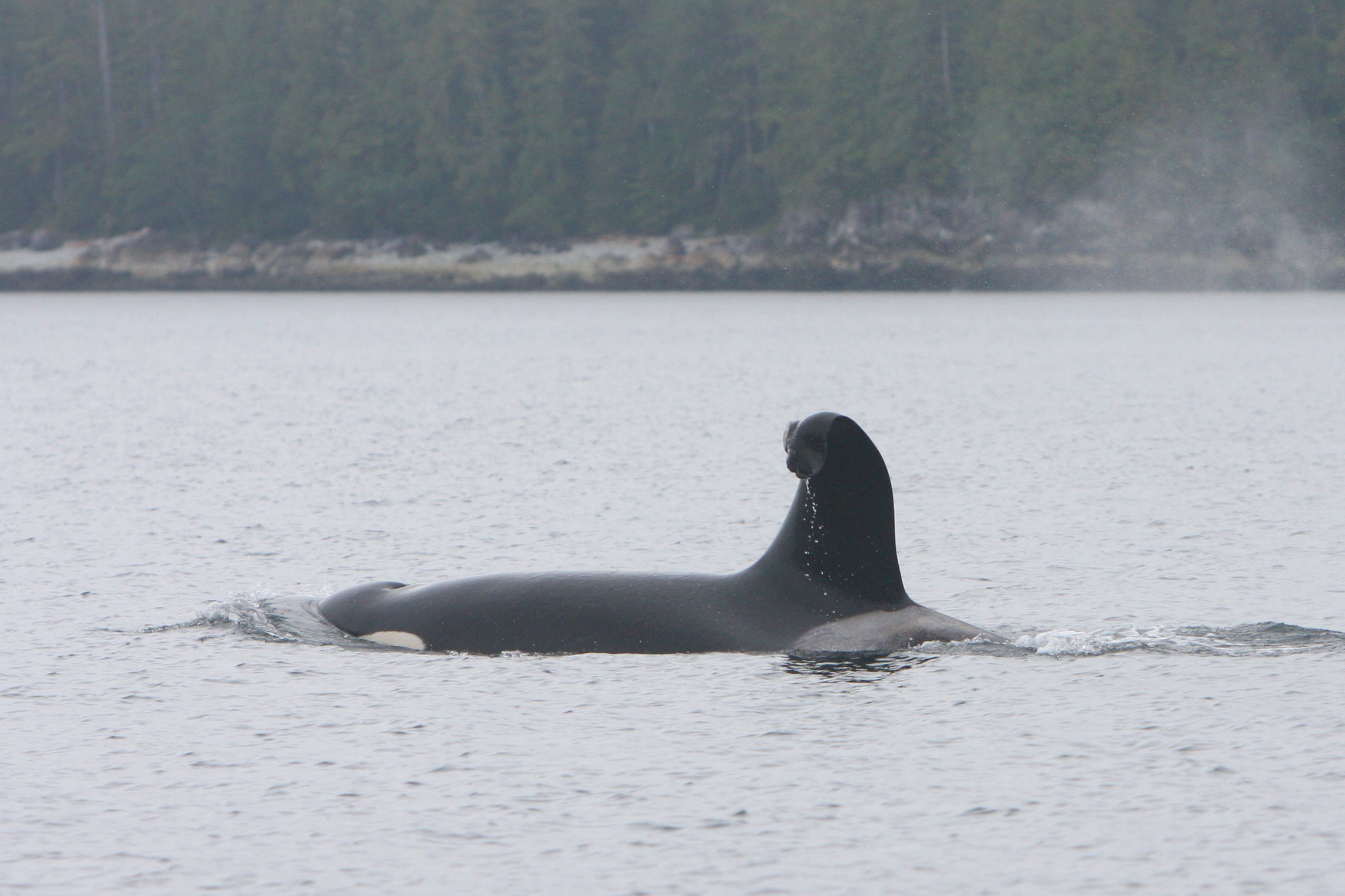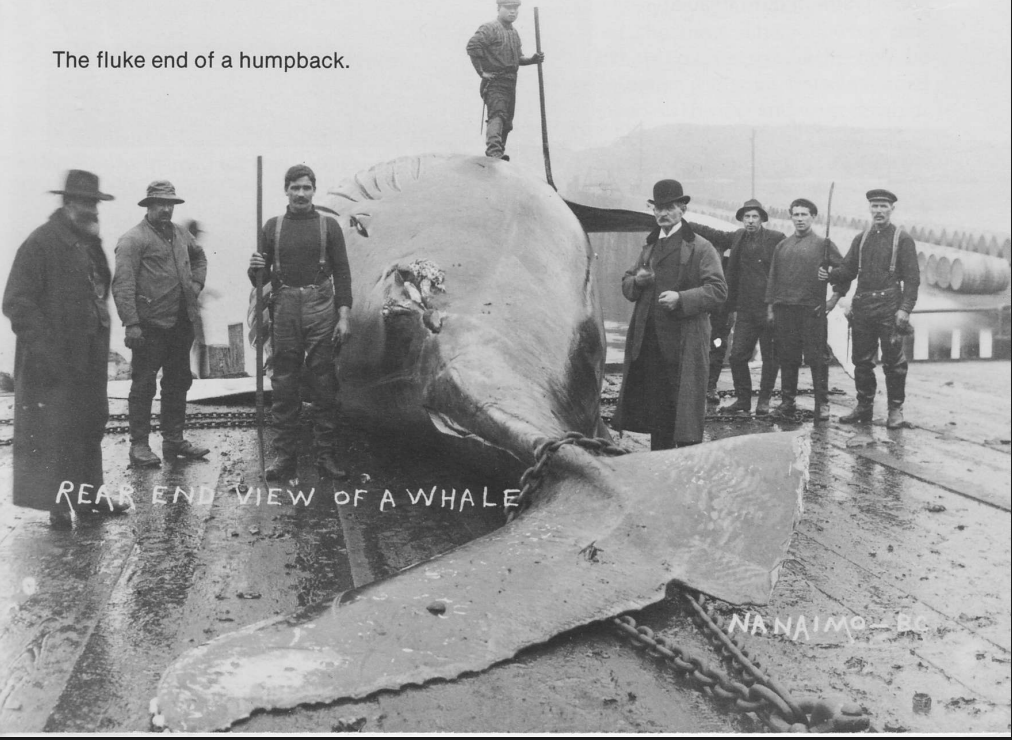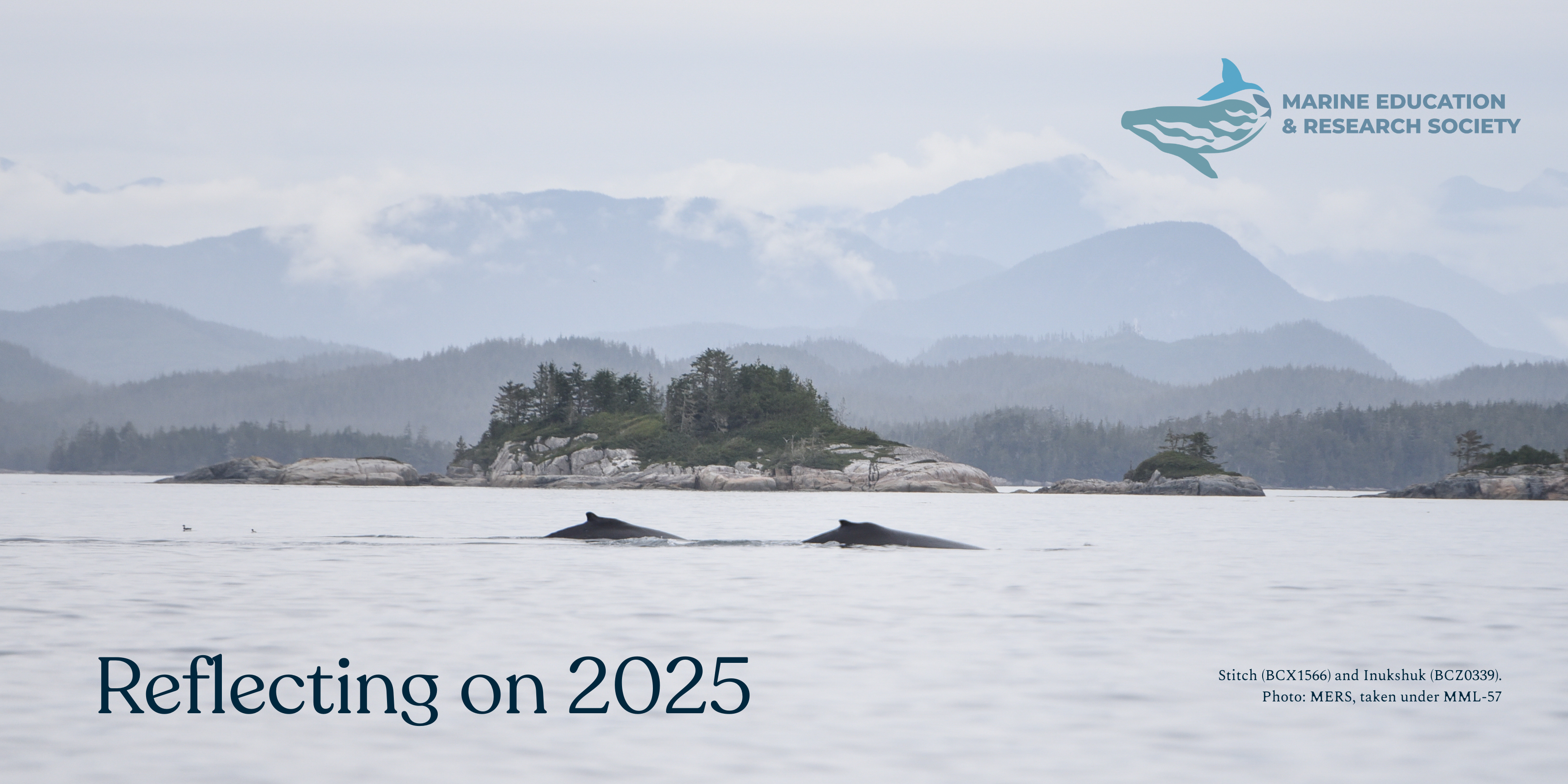It is not often that a dead killer whale is found and even more rare when it is fresh enough to be recognizable. A number of people congregated last Saturday to help in the necropsy of an adult male northern resident killer whale known since birth by researchers with Fisheries and Oceans Canada as I46. He was 28 years old and is survived by his 3 sisters and their offspring.

The northern resident killer whale community is a population listed under the Species at Risk Act as Threatened due to its low numbers (261 in 2010) and vulnerability to several threats including limited prey availability. While it is not known exactly how I46 died it is hoped that the analysis of several samples acquired during the necropsy will shed some light on why he did not live into his 50s like some males in the population. At less than 300 individuals, this population needs all the diversity it can get, so it is somewhat disturbing to see an animal that should be in its prime turn up dead.
The area in which we at MERS carry out the majority of our studies off northeastern Vancouver Island is known as “critical habitat” for the northern resident killer whale population. Thanks to the work of both OrcaLab and DFO it is known that I46 was one whale in particular who utilized this habitat regularly in both the summer and winter. We have seen him here foraging for salmon with his closest sister I68 on many occasions. Unfortunately, we will never see his bent over dorsal fin plying these waters again.

Like many things in the cetacean research community in British Columbia, the study of I46’s body would not have been possible without so many people. Rod Palm with the Strawberry Isle Marine Research Society organized the retrieval of the body of this whale while most other plans were carried out by the Marine Mammal Response Network at DFO and Mike De Roos, master cetacean skeleton articulator. Today, with the necropsy and associated smell still fresh on all of our senses we are reminded of how mysterious the lives and deaths of individuals in one the most heavily studied and well-understood cetacean populations in the world remain.
~MERS


